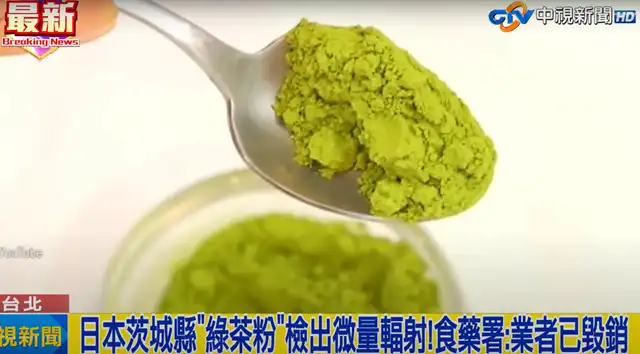Microscopic Levels of Radiation Detected in Japanese Imported Food
- Normal Liver Cells Found to Promote Cancer Metastasis to the Liver
- Nearly 80% Complete Remission: Breakthrough in ADC Anti-Tumor Treatment
- Vaccination Against Common Diseases May Prevent Dementia!
- New Alzheimer’s Disease (AD) Diagnosis and Staging Criteria
- Breakthrough in Alzheimer’s Disease: New Nasal Spray Halts Cognitive Decline by Targeting Toxic Protein
- Can the Tap Water at the Paris Olympics be Drunk Directly?
Microscopic Levels of Radiation Detected in Japanese Imported Food: 5 Batches in 2023
- Should China be held legally responsible for the US’s $18 trillion COVID losses?
- CT Radiation Exposure Linked to Blood Cancer in Children and Adolescents
- FDA has mandated a top-level black box warning for all marketed CAR-T therapies
- Can people with high blood pressure eat peanuts?
- What is the difference between dopamine and dobutamine?
- How long can the patient live after heart stent surgery?
Microscopic Levels of Radiation Detected in Japanese Imported Food: 5 Batches in 2023
The Taiwan Food and Drug Administration revealed that yet another batch of Japanese imported food has been found to contain trace amounts of radiation.
On Dec 05, the administration disclosed that a batch of mushroom powder from Kumamoto tested positive for traces of cesium-137, although the levels are within permissible limits. The importers have been advised to withdraw the product voluntarily.
This marks the fifth instance this year of Japanese food products testing positive for minimal radiation, with none originating from the five prefectures surrounding the Fukushima nuclear disaster site.

screenshot from youtube
Fukushima: The 85.5 Bq/kg radioactive cesium-137 was detected in the sea bass
Deputy Director Lin Jinfu of the Taiwan Food and Drug Administration informed reporters that the mushroom powder contained 10.6 becquerels per kilogram of cesium-137, which is below the limit.
However, in accordance with a resolution from the Legislative Yuan, if even trace amounts of radiation are detected, it is recommended that importers voluntarily withdraw or dispose of the products, with the decision left to the discretion of the businesses. So far, all products found with minimal radiation have remained within acceptable limits.
Under current regulations regarding residual radiation levels, the combined levels of cesium-134 and cesium-137 have different standards for various categories of food items.
Beverages and bottled water have a limit of 10 becquerels per kilogram, baby food and dairy products have a limit of 50 becquerels per kilogram, and other food items have a limit of 100 becquerels per kilogram.
The Japanese food products found with minimal radiation this year include green tea powder, matsutake mushrooms, matcha powder, yuzu extract, and others, sourced from regions such as Hokkaido, Kagoshima, and Aichi.
According to statistics from the Taiwan Food and Drug Administration, from March 15, 2011, to December 3, 2023, a total of 221,475 batches of Japanese imported food have been inspected, with 253 samples testing positive for minimal radiation, all within the acceptable limits set by Taiwan and Japan.
Following the Fukushima nuclear disaster in 2021, Taiwan imposed an 11-year ban on food imports from the five prefectures surrounding Fukushima.
However, on February 21, 2022, the Taiwan Ministry of Health and Welfare’s Food and Drug Administration lifted the ban and introduced a new policy requiring radiation testing certification for specific Japanese food imports. Imports from Fukushima, Ibaraki, Tochigi, Gunma, and Chiba prefectures were then subjected to border inspections.
Taiwan detects radiation in food imported from Japan for the first time
China: Zero Import of Seafood from Japan in September
Japan suspends the sale of a marine fish with excessive radiation
Microscopic Levels of Radiation Detected in Japanese Imported Food: 5 Batches in 2023
References:
1.https://www.cna.com.tw/news/ahel/202312050064.aspx
2.https://www.youtube.com/watch?v=xWg5sXhneMU&ab_channel=%E4%B8%AD%E8%A6%96%E6%96%B0%E8%81%9E
(source:internet, reference only)
Disclaimer of medicaltrend.org
Important Note: The information provided is for informational purposes only and should not be considered as medical advice.



